About Our Internship Program
FOSCOD’s internship program in Uganda offers students and professionals a hands-on, immersive experience in sustainable community development. Rooted in an asset-based approach, interns collaborate with local communities and partner organizations to address critical needs while gaining invaluable skills and cultural insights. This transformative program fosters meaningful exchanges, empowering both interns and communities to drive lasting change.
Our Internship Package
This program offers a unique opportunity to engage in community-driven projects while gaining valuable hands-on experience in sustainable development. Tailored to your skills, interests, and the specific needs of the communities we serve, this immersive experience will deepen your understanding of ethical, impactful development practices
Your internship journey starts with your application. From there, we guide you through a smooth transition into the program, including
- Comprehensive Pre-Departure Support: Guidance on travel logistics, cultural insights, health and safety protocols, and program expectations.
- Intensive Communication: Our team keeps in close contact, following a structured timeline to help you prepare for your trip and internship.
- Host Organization and Site Preparation: We ensure both you and your host community are well-prepared for a successful experience.
Upon arrival, you will participate in a structured orientation program designed to equip you with essential knowledge and skills to navigate your new environment. Orientation covers:
- Cultural and Community Insights: Understanding local customs, traditions, and societal norms.
- Safety and Adaptation Training: Strategies for personal security and adapting to your host community.
- FOSCOD Program Overview: Introduction to our work, mission, and ethical development principles.
Interns work closely with our team and host organization supervisors to integrate into the community and develop a meaningful project. This includes:
- Conducting a community needs assessment to align your work with local priorities.
- Building strong relationships with stakeholders.
- Designing a work plan that contributes to long-term impact.
• Project Objectives: Clearly defined goals and desired outcomes of the project.
• Project Scope: Boundaries and deliverables of the project, outlining what is included and excluded.
• Timeline and Milestones: A detailed schedule with key checkpoints to track progress.
• Resource Allocation: Assignment of personnel, budget, and other necessary resources to project tasks.
• Stakeholder Engagement: Actively involving all relevant parties in the project throughout the implementation process.
• Risk Management: Identifying potential issues and developing strategies to mitigate their impact.
• Progress Monitoring: Regularly tracking project performance against the plan to identify deviations and take corrective actions.
• Communication Plan: Establishing clear channels for communication with stakeholders to keep everyone informed.
• Deliverables: The tangible outputs or results that the project is expected to produce.
Learn to write a professional end of project report
Presenting findings and hand over project report to stakeholders for sustainability beyond your internship.
Deepen your understanding of international development issues through workshops featuring
- Expert-led discussions.
- Cultural site visits.
- Hands-on service-learning activities.
Take a refreshing weekend retreat to recharge, reflect, and gain new perspectives beyond your project work. Enjoy and have fun.
- A chance to reflect on your experience.
- Travel excursions for cultural exposure.
- Bonding and networking opportunities with fellow interns.
Regular group meetings offer a supportive space to:
- Share and process experiences.
- Navigate cultural adaptation challenges.
- Expand awareness of development work and best practices.
For full cultural immersion, interns live with a host family for the first eight weeks, fostering deep community connections. Long-term interns (16+ weeks) demonstrating cultural adaptation may opt for independent housing after this period.
Internship Opportunities by Sectors
Benefits of the Internship
Work on projects that create lasting change
Tailored guidance and support from start to finish
Gain a rich understanding of community-driven development.
Develop key skills in project management, leadership, and sustainability.
Who Can Apply / Eligibility
- University students seeking hands-on experience or earning academic credits through internship programs.
- Recent graduates looking to apply their knowledge in real-world settings.
- Early-career professionals eager to gain practical skills in sustainable development.
- Individuals passionate about global health, education, sustainable agriculture, or women’s empowerment who want to make a meaningful impact.
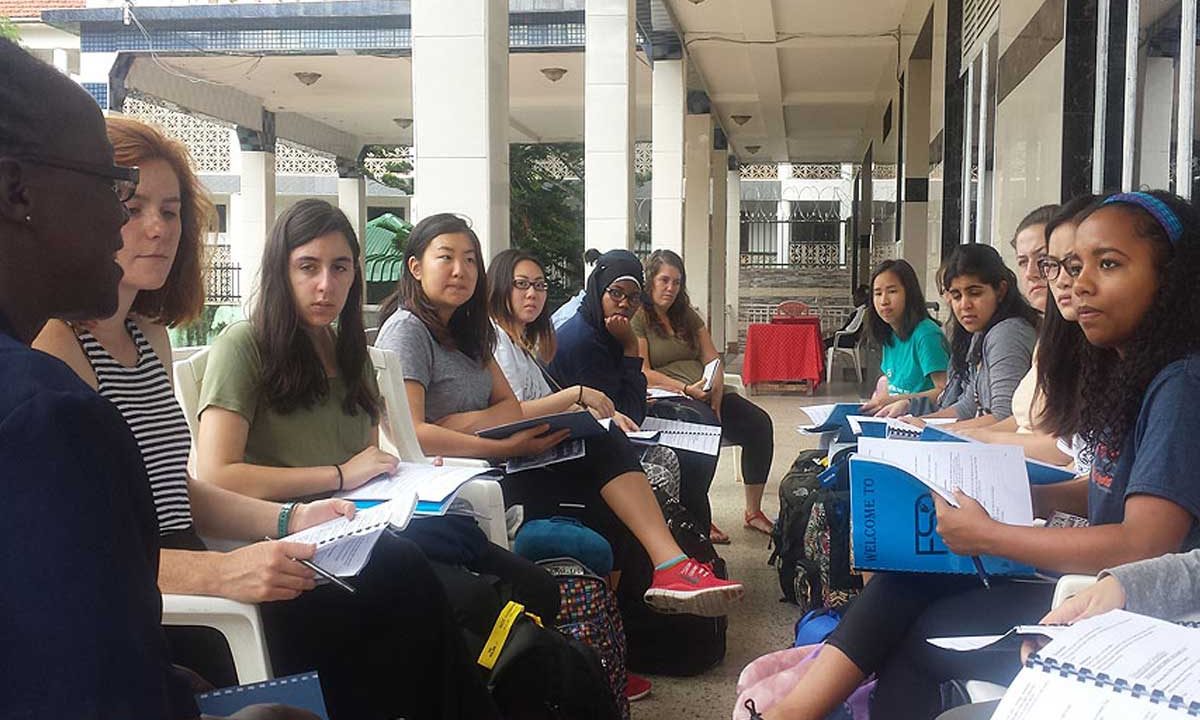
Types of Internships
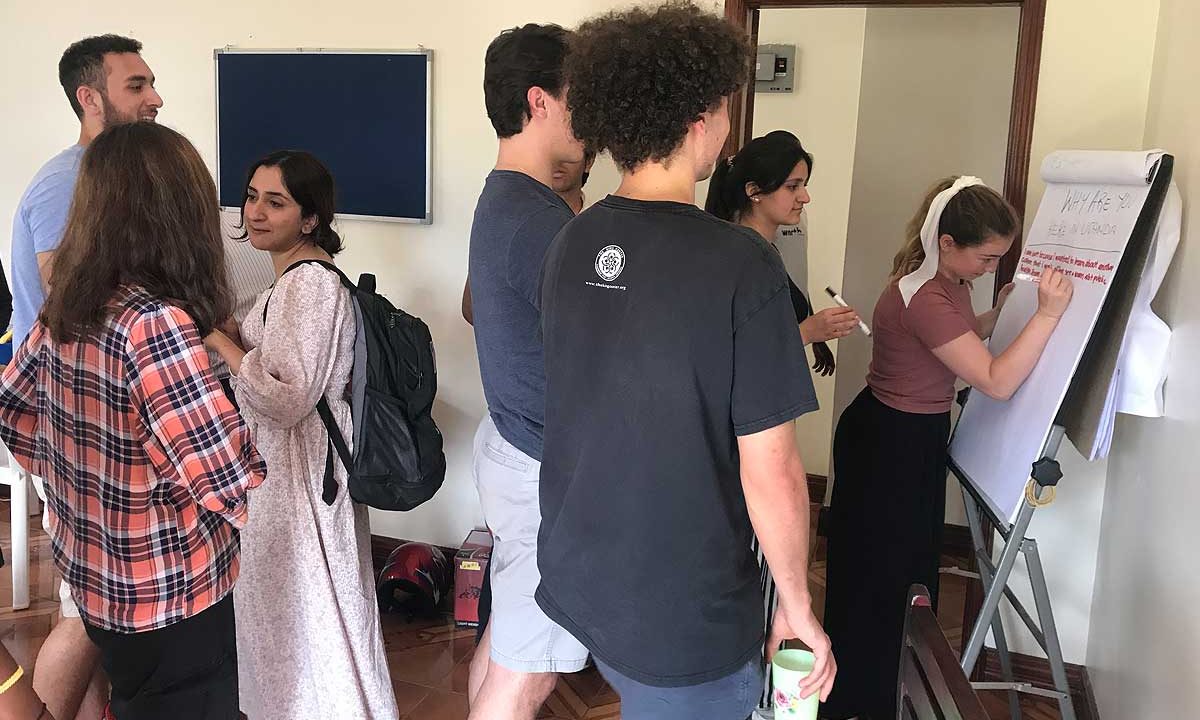
Group Engage Internship
The Group Engage Internship is a collaborative experience designed for university cohorts, student organizations, and professional groups eager to make a collective impact. This program allows participants to work together on community-driven projects, combining diverse skills and perspectives to address real-world development challenges.
Groups engage in hands-on activities such as community assessments, project design, and implementation while learning from local leaders and organizations. The experience fosters teamwork, cross-cultural exchange, and professional growth, ensuring each participant gains valuable skills in sustainable development.
Ideal for academic credit programs, service-learning groups, and professional development teams, the Group Engage Internship offers a structured, immersive opportunity to contribute meaningfully while strengthening leadership and problem-solving abilities.
Individual interns
Immerse yourself in sustainable development with our individual internship program, tailored for young professionals and students passionate about creating lasting impact. Gain hands-on experience in community-driven initiatives, foster cultural exchange, and develop valuable skills in asset-based development, all while contributing to a more just and sustainable future.
What are our internship start dates?
| Program | Application Deadline | Start Date | End Date |
|---|---|---|---|
| Summer 2025 | March 15, 2025 | June 1, 2025 | August 15, 2025 |
| Fall 2025 | July 1, 2025 | September 1, 2025 | December 20, 2025 |
| Spring 2026 | November 15, 2025 | January 15, 2026 | May 1, 2026 |
What are the program fees?
The program fee covers all the in-country costs of your program, including the following items:
- Airport pickup and drop off
- Programorientation
- Training workshops in sustainable development principles, project planning and budgeting, program evaluation, community assessment, and proposal writing OR basics of Community Based Participatory Research (CBPR)
- Cultural activities
- Family homestay
- Three meals per day
- Local mobile phone and mobile WIFI
- Money for local transportation (commuting between host home and the development project)
- A midterm retreat
- In-country support from your FSD Uganda team 24/7
- Seed funding for the sustainable development project
The Program cost is USD $2,148 for the first week and USD$168 for each added week thereafter as listed and illustrated below:
WEEKLY COSTING
WEEKS | COST |
2 | 2316 |
3 | 2484 |
4 | 2652 |
5 | 2820 |
6 | 2988 |
7 | 3156 |
8 | 3324 |
9 | 3492 |
10 | 3660 |
11 | 3828 |
12 | 3996 |
What is our impact?
90%
of our interns secure full-time positions within 6 months of program completion
500+
alumni working at leading companies worldwidean
85%
of interns rate their experience as “excellent”
Intern Duration
Sustainable Community Development internships in Jinja, Uganda offer flexible timeframes to match your goals. Programs run from a minimum of 4 weeks to 12 weeks, with extended options available for deeper engagement. Duration can be customized based on your specific interests, project needs, and desired community impact.
Location and Cultural Experience
JINJA, UGANDA: WHERE ADVENTURE MEETS PURPOSE
Uganda, often called the “Pearl of Africa,” offers you an opportunity to have an internship experience unlike any other—and Jinja, your internship location sits at the heart of this extraordinary opportunity. Located at the source of the Nile River, Jinja combines professional growth with life-changing adventures in a setting that will transform both your career and perspective
THE VIBRANT CULTURE OF UGANDA
Uganda’s rich cultural tapestry will surround you daily. With over 50 distinct ethnic groups and languages, the country’s diversity is reflected in its music, dance, art, and cuisine. In Jinja and surrounding communities, you’ll experience:
- The rhythmic traditional dances of the Basoga people
- Colorful local markets offering handcrafted textiles, jewelry, and artwork
- Community gatherings featuring storytelling and cultural performances
- Authentic Ugandan cuisine—from matooke (steamed plantains) to fresh tilapia from Lake Victoria
Most importantly, you’ll connect with Uganda’s people, whose legendary warmth and hospitality will make you feel welcome from your first day. The genuine friendliness that defines Ugandan culture creates immediate connections across language and cultural differences.
ADVENTURE AT THE SOURCE OF THE NILE
Jinja’s location at the source of the world’s longest river makes it Uganda’s adventure capital. Your weekends and free time will be filled with exhilarating experiences:
- White-water Rafting: Navigate world-class rapids on the Nile River
- Kayaking and Stand-up Paddleboarding: Explore the river’s calmer sections
- Bungee Jumping: Take a 44-meter plunge toward the Nile
- Quad Biking: Journey through local villages and scenic countryside
- Horseback Safaris: Experience Uganda’s landscapes from a unique perspective
A short journey from Jinja reveals even more of Uganda’s natural splendor:
- Mabira Forest: Trek through Uganda’s largest rainforest reserve
- Sipi Falls: Hike to stunning waterfalls on the slopes of Mount Elgon
- Lake Victoria: Explore the shores of Africa’s largest lake
WILDLIFE ENCOUNTERS
Uganda offers some of Africa’s most diverse wildlife viewing opportunities. Weekend excursions from Jinja can bring you face-to-face with:
- Mountain gorillas in Bwindi Impenetrable Forest
- Chimpanzees in Kibale National Park
- Tree-climbing lions in Queen Elizabeth National Park
- Massive hippo pods and Nile crocodiles at Murchison Falls
These conservation areas showcase Uganda’s commitment to protecting its natural heritage while providing unforgettable encounters with extraordinary wildlife.
A TRANSFORMATIVE EXPERIENCE
An internship in Jinja goes beyond professional development—it’s a journey that will expand your worldview, challenge your assumptions, and connect you with a global community. You’ll develop resilience, cultural intelligence, and a deeper understanding of both global challenges and the innovative solutions addressing them.
You’ll return home with not only enhanced skills and impressive additions to your resume, but also with stories, friendships, and perspectives that will shape your personal and professional future.
Jinja awaits—where your meaningful work meets unforgettable adventure on the banks of the mighty Nile.
Frequently Asked Questions
Preparation
Q: Do I need to have certain skills before I arrive?
A: It’s best to prepare for the experience by doing your own research about Uganda, it’s history, and development issues related to your program. Generally, if you are accepted to the program, we have assessed that you already have the skills required to participate.
Q: What does FOSCOD do to prepare interns for their programs abroad?
A: FOSCOD will place you with a community OR an organization and host-family prior to your arrival. You’ll have a chance to speak with the staff on the ground before you arrive to answer any questions and to give you support you may need. We expect that you will also prepare yourself by conducting research about your travel abroad.
Q: What flight options are suggested or frequently used? When should I start looking at flights?
A: You are welcome to look at costs for flights as soon as you wish, and you should aim to book your flight at least a month in advance. You should wait to book your flight until after you have been accepted to the program, confirmed your participation with FOSCOD, and understand the requirements you need for entry (visa, immunizations, etc.). Your pre-departure packet will have additional information about your arrival.
Q: Do I need a visa to participate?
A: You can find out the requirements for your stay in Uganda by following this link: https://visas.immigration.go.ug/. For US citizens, check the US State Department website for travel to Uganda. Note that visa processing times vary depending on your availing the necessary information needed.
Q: Do I need vaccinations?
A: Check with your physician and the Center for Disease Control (CDC) for guidelines on what health precautions and immunizations are recommended or required for entry. You need a Yellow Fever Vaccination proof upon your arrival.
Q: What are FOSCOD’s recommended start dates for volunteer or Internships?
International Development Volunteer Internships, Research Internships and Language immersion all begin during designated start dates throughout the year. The designated start dates are January 24th, 2025 for winter participants, March 18th 2025 for Spring participants and May 28th and June 18th for Summer I&II participants respectively and October 8th for fall participants.
Participants should arrive in-country on the program start date in order to participate in the in-country orientation led by FOSCOD staff team. Please contact FOSCOD directly for information on flexible start dates at info@FOSCOD.org.ug
In-Country
Q: Is airport pick up and drop off included in the program or do I have to arrange that myself?
A: The FOSCOD staff team will pick you up from the local airport and transport you to the location of orientation. They will also arrange your drop off at the end of your program. Note that these are normally arranged as group transportation so you should talk with a member of staff team to determine the timeframe you should plan to arrive and depart.
Q: Where does orientation take place?
A: Orientation typically takes place in a hotel or guest house or at FOSCOD office before transporting you to your host family. Our Orientations often involve a day or two at a hotel so that you can spend the majority of your time in the community
Q: What do host families provide for FOSCOD participants?
A: Host families provide a cultural link to the local community in which FOSCOD participants work, as well as providing a clean and safe location for the participant to stay for the duration of the internship. They provide three meals of local cuisine every day and a private room for the participant, as well as opportunities to join them in cultural/family activities.
Host-Families
Q: How are host families selected and matched with participants?
A: Host families are selected from FOSCOD’s network of community members who have expressed a desire to assist participants with their cultural integration, and who meet our standards of health and safety. Most families are identified through recommendations and local networks of our in-country staff.
Q: What is a typical host family like?
A: All host families are local community members, and the living conditions of a typical host family are “middle class” by local standards. The sizes and dynamics vary, and participants are matched up with host families based on individual preferences.
Q: Can special medical/physical/dietary needs be accommodated?
A; Host families are able to accommodate special dietary needs (within reason). Host families understand common allergies (milk, gluten, peanuts), and can also accommodate for vegetarian and vegan diets within.
Q: Can I arrange my own accommodations instead or stay at a hotel?
A: In general, FOSCOD discourages participants from staying in alternative accommodations, but exceptions may be made in cases in which participants will be in the host community for a short time period or have sound reasons to stay in alternative accommodations or by themselves and have proof for their safety.
Q: Do host families speak English?
A: FOSCOD strives to ensure that at least one person in the home speaks English. Since English is not commonly spoken across all FOSCOD host homes, many participants find that learning to communicate with their families in different ways often enriches their immersion into the culture.
Q: When will interns know about their host family placement?
A: Interns will be given host family information two weeks before the program start date. We do not provide family placements further in advance so that the chances for unexpected changes are minimized.
Q: How close will my host family’s residence be to my host organization / Community?
A: Distances between host-family residences and host organizations or host communities vary. However, the in-country orientation will cover day-to-day details such as navigation of public transit systems and how to get to and from the host organization. We strive to ensure that you are not traveling far distances each day to get to work, but we also want to ensure that interns are placed with the best match in terms of host-family and organization.
Host-Organizations/communities
Q: How are organizations selected and matched with participants?
A: FOSCOD partners with community organizations with deep roots in the community, have goals that align with FOSCOD’s approach to development, and meet FOSCOD’s standards for health and safety of participants. We make placements to ensure that the interests of the participant align with the priorities of the organization, thus fostering a mutually beneficial experience.
FOSCOD has a community mobilization and empowerment program in which direct support is given to grassroots communities. We make placements to this program when the participant interests align with one of the many projects running on this program. FOSCOD is currently working with the grassroots community of Kalagala parish, Wakisi Division of Njeru Municipality in Buikwe District.
Q: Can I get in touch with your partners directly?
A: As part of FOSCOD’s agreement with partners, we do not share their contact information with those who are not participating in the program. After you apply and have been accepted, you are more than welcome to have conversations with your host organization colleagues.
Q: Will anyone at the organization speak English?
A: English is the official language in Uganda. Your main supervisor will speak some English, but often your colleagues will speak in the local language to each other. The local, basic language will be taught during orientation so you have a way to converse and build relationships
Safety/Security
Q: What safety measures are put in place to minimize risk for interns/volunteers?
A: Safety is FOSCOD’s number one priority. We work hard to develop emergency protocols and safety standards that meet our participant expectations. We also train our host families and partner organizations on our safety and security protocols.
Q: Do you have site-specific information on safety?
A: FOSCOD operates in locations that do not pose an increased safety risk to participants. Of course, participants must be diligent in ensuring their own safety and are briefed on this during orientation. Our specific safety information is provided to interns in a pre departure packet and reviewed in detail during the in-country orientation. Feel free to contact us if you have any specific questions or concerns about the safety while in-country
Q: Do you have site-specific information on transportation to and from the host organization/community?
A: Our specific information on transportation to and from the host organization is provided to participants during the in-country orientation. Most commonly participants take public transportation to and from their host organization/community.
Health
Q: What are the most common illnesses in Uganda?
A: For health information for Uganda, participants should refer to the CDC website to learn about health concerns and appropriate vaccinations. Once participants arrive in Uganda, they will also receive a health briefing during the in-country orientation.
Q: What are some general precautions that interns should take in order to avoid illness?
A: Interns should follow the recommendations of the CDC with regard to Uganda. This includes getting the appropriate vaccinations and following recommendations about mosquito netting, insect repellent, and clothing guidelines.
Q: How do I learn about the immunizations and health precautions I need to take?
A: Please check with your physician and the CDC to review immunizations required and recommended for travel.
Q: Who can I contact in case I get sick and need assistance or miss work?
A: FOSCOD’s staff team are on call 24/7 for health issues and medical emergencies, and are the best ones to provide care to the individual. We are familiar with the local area and how to get care to participants as quickly as possible. We have identified inpatient and outpatient facilities based on the needs of the participant. Information regarding emergencies and illness is provided in the pre-departure packet and discussed during the in-country orientation. If you are going to miss time at your host organization due to illness, you should contact your host organization supervisor.
Q: Is there clean water available at sites where water sanitation is an issue?
A: Clean water is provided by FOSCOD at all program activities, such as orientation, workshops and FOSCOD-facilitated excursions. Host families provide participants with clean water daily, which might be bottled, boiled, or sanitized to ensure participants have access to safe drinking water. Participants should bring a travel water container so they can always have water at their worksites and during field visits, where clean drinking water can not be guaranteed.
Q: Is the food safe to eat?
A: Food from street vendors is not recommended, especially when participants are still adjusting to the local foods. Host families make every effort to protect the health of participants by cooking food that is clean and will accommodate dietary restrictions within reason. Food plays an important role in culture, and participants are encouraged to slowly open up to exploring the new tastes as their stomachs adjust to the environment.
Educational Components/Training
Q: Will interns have to do any work prior to arriving in-country?
A: All participants should spend some time considering the work they will do before arriving in their host country. However, most of the training and work begins after the participants’ arrival at the site.
Q: What sorts of training will interns undergo?
A: FOSCOD interns will receive extensive sustainable development training through the program. This includes training on asset-based community development and active involvement with volunteers, host organization supervisors. Interns will also gain experience in proposal writing, as well as general experience in development project work.
Q: What kind of research about the site and the organization should I do before arriving in-country?
A: Participants should have a basic understanding of the country and specific site including its history; contemporary political, social, and economic conditions; and any other relevant information. Interns should also research the host organization’s mission, approach, and ongoing projects prior to arrival in the country.
Site Staff
Q: How is FOSCOD Uganda staffed and what is their role?
A: The FOSCOD staff team is comprised of a Executive Director, Program Coordinators and an Office administrator. FOSCOD’s Program Coordinators and the ED are experts in the field of community development, which makes them a great resource for interns as they develop and implement their projects. The Program Coordinators develop and maintain FOSCOD’s relationships with the community development organizations and families who will host interns and is involved in developing—together with the community development organizations—specific internship opportunities. The Program Coordinator provides extra support to FOSCOD’s interns, host families, and community organizations. While interns are in the field, The Program Coordinators serve as a bridge to the local culture and language; they also function as a lifeline when culture shock inevitably sets in, and are available to advise interns as they develop their work plans.
Q: How can I get in touch with the FOSCOD staff team directly?
A: Participants will be provided with contact information of the FOSCOD in-country team before they arrive. Family members and friends are encouraged to contact participants directly rather than FOSCOD staff. For any concerns or questions, they may also contact FOSCOD Uganda Program director, Margaret Nassozi Amanyire Phone number: +256-753449450/+256-772989971 email: foscodmargaret@gmail.com
Q: How often will participants be in contact with staff team once they arrive in-country?
A: The FOSCOD team will provide the in-country orientation to all FOSCOD participants, and conduct regular check-ins with both host organizations and participants throughout the program. In addition to regular check-ins with participants, the staff is available to advise participants as they develop and implement their work plans. The team is also on-call 24/7 and participants should feel comfortable reaching out at any time if they need to schedule a meeting with the site team.
Other
Q: Can I plan activities outside of the program?
A: Yes! FOSCOD participants are encouraged to plan activities and excursions in their free time, but they should not plan activities that will take them away from their usual work. As part of the International Internship, Research Internship, and Gap Year programs, FOSCOD staff will plan a midterm retreat, which will include a weekend excursion.
Uganda’s travel activities are centered around their natural beauty in the forms of wildlife and landscape. The most popular things to do here are safaris for the elusive Mountain Gorillas, visits to the source of the Nile, site-seeing at the Murchison Falls, and outdoor activities at Lake Bunyonyi. If you are planning to do an in-country excursion /safari to any of these popular tourist destinations, we encourage you to save an average of $500.
Q: What do interns do with their free time?
A: Many participants spend their free time with their host families, exploring the communities, attending cultural events, reading a book, or spending time with other FOSCOD participants.
Q: How much should I budget for during my time in-country outside of the program fee?
A: Most interns bring $300 – $600 for spending money, but this is a personal preference. You may need more or less depending on your spending habits in your home country.
Q: What are common purchases that interns will make not covered by the program fee?
A: Many interns spend extra money on excursions, souvenirs, or special imported food. All meals, regular transportation, and housing costs are covered in the program fees
How to Apply
Application Review
After you have submitted your application, the FSD team will respond with feedback about your program placement
Nov 09, 2017Intern Alumni Experiences
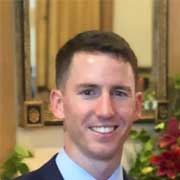
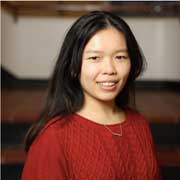

Ready To Apply?
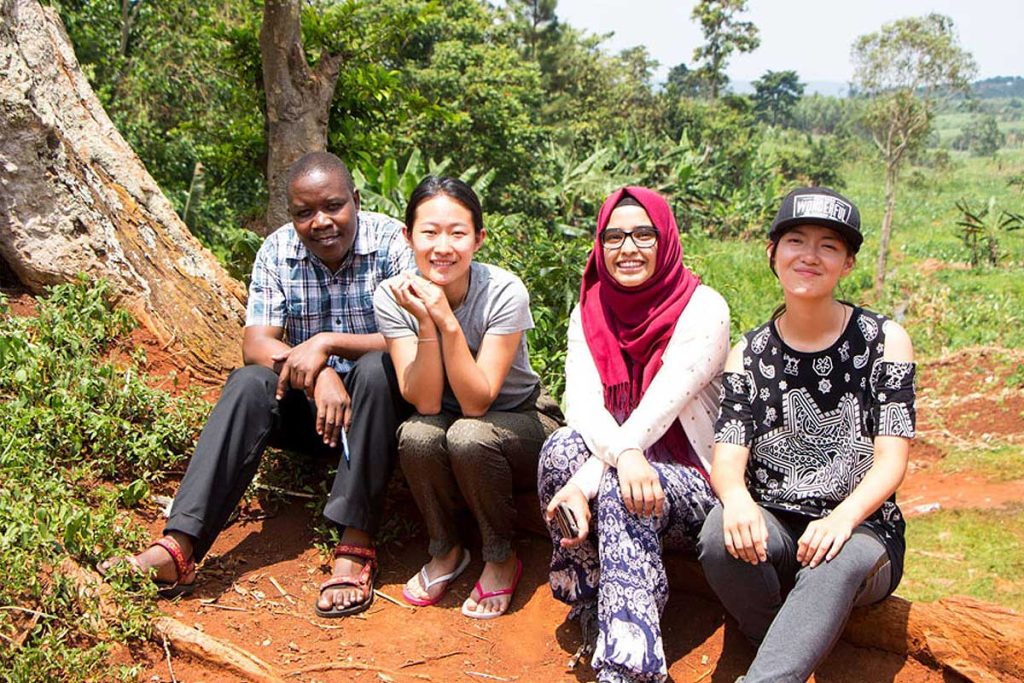
You can engage with us in various ways—whether through in-person involvement or virtual participation—by interning with our direct support communities or our local development partner organizations. Directly support our capacity-building initiatives across different sectors. This experience will enrich your training and prepare you for future endeavors in international development. Start your journey of community transformation by applying today!
